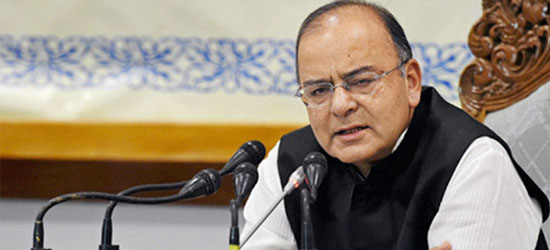
New Delhi: In a historic step in the fight against black money, the Supreme Court on Tuesday directed the Centre to disclose the names of those who had hidden the black money abroad Wednesday in a sealed envelope.
The court rejected the request of the government to modify its previous order on disclosure of all names, saying this was accepted by the UPA government earlier.
The court asked the Centre not to bother about ordering any investigation into the matter, saying that judges will order what type of probe or inquiries were necessary, and by which agency.
Attorney General Mukul Rohatgi told the court that the government had received 500 names of account holders from different countries, including Germany.
In response to a court order, Finance Minister Arun Jaitley said the government was ready to submit the entire list of black money account holders of the Supreme Court on Wednesday.
Mr. Jaitley claimed the government was willing to punish all holders of illegal foreign accounts and would do everything possible to bring back the black money.
***
Finance Minister Arun Jaitley told the truth about those who had money illegally in foreign bank accounts and details of those accounts should leave so she could take criminal action and the money could be brought back to India.
"The government has no difficulty with any agency of the investigation of this matter, because no one is that the government wants to protect in this case, so that those whose names have come to be investigated and punished according to the law," said.
"The Government will list court because the government has already given (listed) to the court-constituted Special Investigation Team (June 27). The government is keen that any procedure in accordance with law we have to get to the root of the matter, "said the minister.
However, he did not respond to a question about whether the government would make public the list.
The minister said the government also wanted to follow proper procedures to ensure that alternative countries continue to cooperate with India.
Earlier on Tuesday, the Supreme Court had rejected the request of Mr. Rohatgi that can reveal the names only after it conducts an investigation into the illegal bank accounts.
"The order was passed in open court in the presence of the attorney general, and the new regime could not ask for a modification of the order. We can not play our order and we will not even change a word of it," said the bank.
"Why are you trying to protect people who have bank accounts abroad? Why are providing a protective umbrella for all these people?" He wondered.
Chief Justice HL Dattu asked the Centre not to fall into any kind of probe by itself, and said the investigation was never completed in his life if it was done by the government. "You do nothing. Just passing the information on account holders to us and we will pass the orders of the probe," the bank said.
The bench did not agree with the statement of the AG that disclosure of the names of the account holders "would violate the privacy rights of people with legitimate accounts, and that the names can be revealed only after it became a presumption of tax evasion.
The AG alleged that the SIT office was not a statutory body that can issue notice to account holders and this could be done only by the IT department.
"We want the names provided to you by foreign countries. Pass it on to us. You give the information to us. We have taken the case and are monitoring it. Just give us the information and we want to pass to the SIT. The SIT will take the case to its logical conclusion, "the court said.
The Congress said the order of the Supreme Court on the issue of black money had "excuses" of the NDA government "exposed." General Secretary of AICC Ajay Maken said. "During the campaign (Lok Sabha), BJP leaders were declaring to all and sundry that the black money stashed abroad be returned within 100 days (But) when he came to the names, just released three. "
BJP leader Subramanian Swamy also referred to as "wrong" the position taken by the government that the names of those with foreign bank accounts could not be disclosed due to treaties.






















